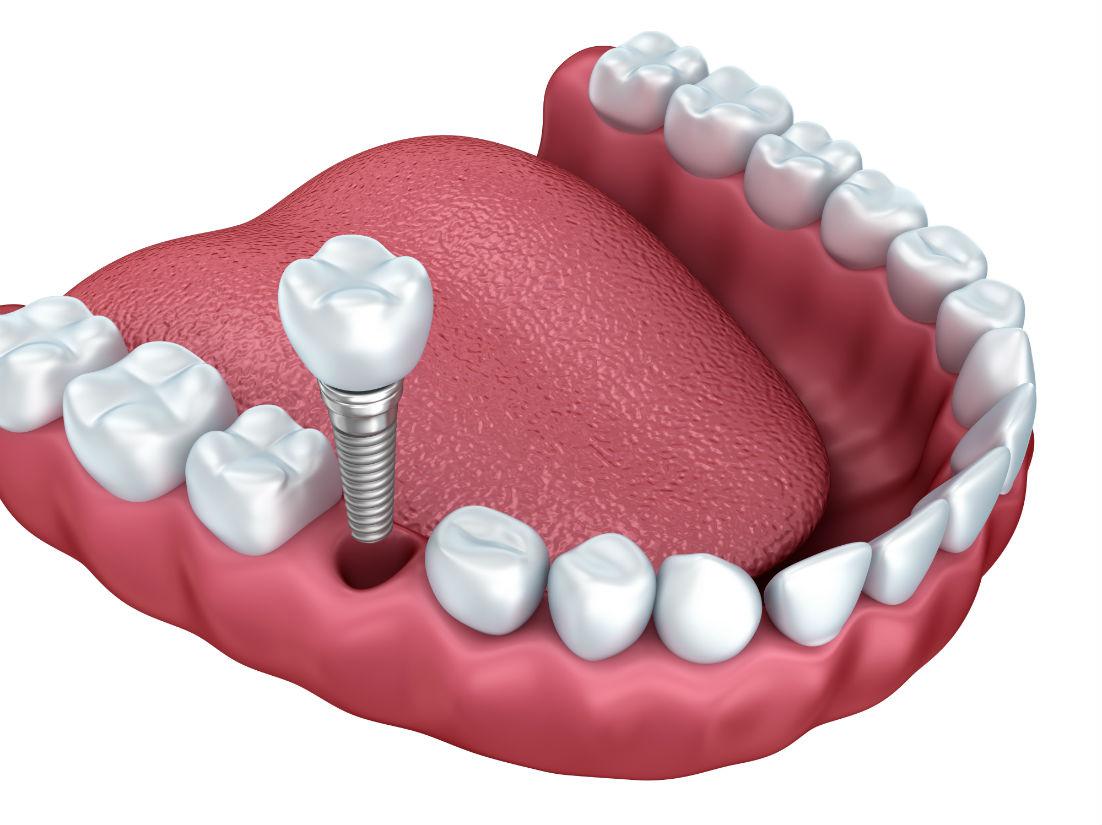 An estimated two in three Americans are missing one or more teeth, and a shocking 30 million Americans are missing all of their teeth in one or both jaws. Given the significant role a healthy smile plays in one’s self-confidence and quality of life, tooth loss can have a far-reaching impact on a patient’s life.
An estimated two in three Americans are missing one or more teeth, and a shocking 30 million Americans are missing all of their teeth in one or both jaws. Given the significant role a healthy smile plays in one’s self-confidence and quality of life, tooth loss can have a far-reaching impact on a patient’s life.
Unlike earlier days where tooth loss was only treatable using dentures and bridges, today, missing teeth can be treated using dental implants. Not only do today’s implants restore function, but, just as importantly, they also fulfill patients’ esthetic expectations.
What exactly are dental implants?
Dental implants are essentially artificial tooth roots that create a strong foundation for artificial teeth, which are known as crowns. Crowns are custom-made to fit a patient’s mouth and match their natural teeth. Many dentists and patients prefer dental implants because they offer the same function as natural teeth and also help prevent bone atrophy in the jaw. They can be used to replace a single missing or damaged tooth or to restore an entire smile.
Am I a good candidate for dental implants?
If you are one of the millions of Americans living with missing teeth, you might be wondering if dental implants are a good option for you. Given the number of implant options available today, most people are good candidates. As long as facial growth and development are complete – usually around 16 years of age for girls and 18 for boys – dental implants can be an excellent option for those who were born without a tooth or have lost teeth due to injury or decay. Prior to determining the appropriate course of action, patients undergo a thorough evaluation of the jaw, teeth, mouth, and overall health. This generally includes a mouth X-ray and/or a CT scan to help identify areas of bone loss, shape of the sinuses and nerve location, which are critical when assessing treatment options.
Overall, dental implants might be right for you if:
- You have healthy oral tissue and gums
- You have enough bone in your jaw to secure the implants or are eligible for a bone graft
- You don’t like dentures or are unable to wear them
- You do not have health conditions that would affect the healing process after surgery
- You have one or more teeth that will need to be replaced
- You are a non-smoker
- You will maintain good oral hygiene and visit your dentist regularly
What makes someone a poor candidate?
While dental implants are a great treatment option for most people, there are certain conditions that can adversely affect outcomes. These include:
- Uncontrolled diabetes
- Cancer
- Radiation to the jaws
- Smoking
- Alcoholism
- Gum disease
- Certain medications, such as steroids or immune suppressing drugs
- Teeth grinding or clenching
Patients with these conditions may still be able to have implant surgery but will first need to work with their doctor to increase their overall health.
Dental implants require the development of an individualized treatment plan. The best way to find out if you are a good candidate is to schedule an appointment with our office. Our dental team looks forward to assisting you!


